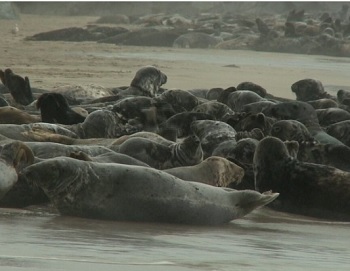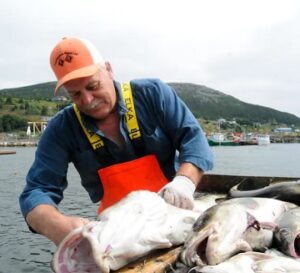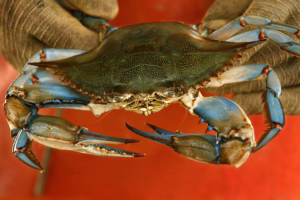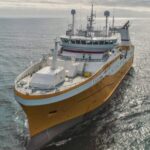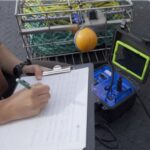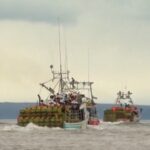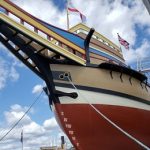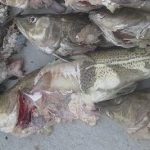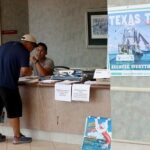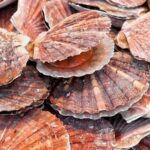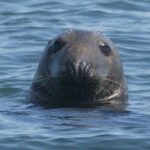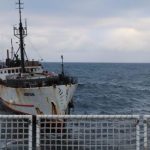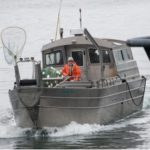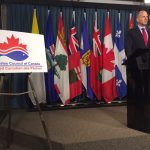Tag Archives: Newfoundland and Labrador
Provincial Fisheries Minister “Not on the Ball” Ahead of 2024 Snow Crab Fishery: Cleary
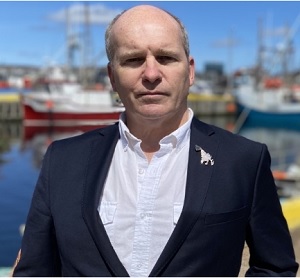 A long-time advocate for inshore enterprise owners is accusing the provincial fisheries minister of not being on the ball ahead of the 2024 snow crab fishery, which is only two-and-a-half months away. Ryan Cleary, who recently stepped down as the Executive Director of SEA-NL, is now focusing his efforts on the creation of a fisheries co-op for local enterprise owners. He expected a decision from Minister Elvis Loveless on new fish processing licences, and the possible lifting of a cap on independent local processors, before Christmas but there’s been no word to-date. more, >>click to read<< 09:50
A long-time advocate for inshore enterprise owners is accusing the provincial fisheries minister of not being on the ball ahead of the 2024 snow crab fishery, which is only two-and-a-half months away. Ryan Cleary, who recently stepped down as the Executive Director of SEA-NL, is now focusing his efforts on the creation of a fisheries co-op for local enterprise owners. He expected a decision from Minister Elvis Loveless on new fish processing licences, and the possible lifting of a cap on independent local processors, before Christmas but there’s been no word to-date. more, >>click to read<< 09:50
Cleary steps down from SEA-NL to focus on fishery Co-op
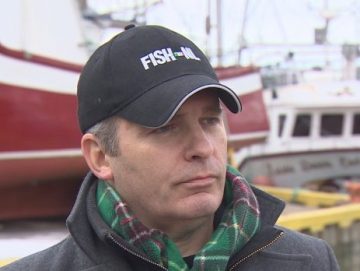 Ryan Cleary stepped down Thursday as Executive Director of SEA-NL, a non-profit association that advocates on behalf of licensed inshore enterprise owners, to focus his full attention on the formation of a new fisheries co-operative. “I remain as passionate about SEA-NL as the day Merv Wiseman and I started the organization and will continue as a tireless advocate for the inshore fleet, but my focus is drawn to the formation of a new fisheries co-operative,” said Cleary, who was hired as SEA-NL’s first Executive Director in February 2022. “The public can expect to hear as much or more from me on behalf of inshore enterprise owners.” Cleary said he hopes SEA-NL will continue its valuable advocacy role, and work hand-in-hand with the new co-operative to achieve the common goal of prosperous fisheries and rural communities. “The goals and objectives of SEA-NL and the future Co-op are the same, and I hope to work collaboratively to achieve them together,” said Cleary, who continues to work with Mr. Wiseman on development of the Co-op. “Full-steam ahead.”
Ryan Cleary stepped down Thursday as Executive Director of SEA-NL, a non-profit association that advocates on behalf of licensed inshore enterprise owners, to focus his full attention on the formation of a new fisheries co-operative. “I remain as passionate about SEA-NL as the day Merv Wiseman and I started the organization and will continue as a tireless advocate for the inshore fleet, but my focus is drawn to the formation of a new fisheries co-operative,” said Cleary, who was hired as SEA-NL’s first Executive Director in February 2022. “The public can expect to hear as much or more from me on behalf of inshore enterprise owners.” Cleary said he hopes SEA-NL will continue its valuable advocacy role, and work hand-in-hand with the new co-operative to achieve the common goal of prosperous fisheries and rural communities. “The goals and objectives of SEA-NL and the future Co-op are the same, and I hope to work collaboratively to achieve them together,” said Cleary, who continues to work with Mr. Wiseman on development of the Co-op. “Full-steam ahead.”
Dear Seamus: All Seasonal Workers Want for Christmas is Dignity and Respect
 This Christmas season, seasonal workers in Newfoundland and Labrador are in crisis due to a failure of the federal government. Despite months of broken promises, the federal government has largely failed to support seasonal workers facing financial crisis this winter season. This Union signalled the coming crisis to the federal government back in April when the markets for snow crab collapsed. At the time, FFAW-Unifor proposed needed changes to the federal employment insurance (EI) system and income supplements for all affected fish harvesters and plant workers. “The crab fishery came and went, and just as the fishing season began to wind down and folks prepared to file their annual EI claims, the federal criteria for EI changed. more, >>click to read<< 14:26
This Christmas season, seasonal workers in Newfoundland and Labrador are in crisis due to a failure of the federal government. Despite months of broken promises, the federal government has largely failed to support seasonal workers facing financial crisis this winter season. This Union signalled the coming crisis to the federal government back in April when the markets for snow crab collapsed. At the time, FFAW-Unifor proposed needed changes to the federal employment insurance (EI) system and income supplements for all affected fish harvesters and plant workers. “The crab fishery came and went, and just as the fishing season began to wind down and folks prepared to file their annual EI claims, the federal criteria for EI changed. more, >>click to read<< 14:26
New fishery co-op partners with Dandy Dan
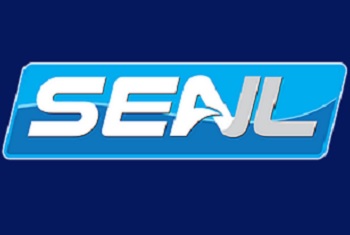 Organizers of a fishery co-operative being formed to represent inshore enterprise owners have agreed to a letter of intent with Dan Meade to sell fish to the Ship Harbour-based processor. Under terms of the agreement, a new fish processing company will be formed that will see the future co-op earn an equity stake in exchange for a pledge to sell at least two million pounds of snow crab a year to the business. “The letter of intent brings the inshore fleet a step closer to breaking itself free from the company cartel,” says co-op organizer/spokesman Ryan Cleary, Executive Director of SEA-NL. Meade sees the partnership as an historic opportunity to rebuild trust with inshore harvesters. “I want to be part of that rebuilding process.” more, >>click to read<< 08:49
Organizers of a fishery co-operative being formed to represent inshore enterprise owners have agreed to a letter of intent with Dan Meade to sell fish to the Ship Harbour-based processor. Under terms of the agreement, a new fish processing company will be formed that will see the future co-op earn an equity stake in exchange for a pledge to sell at least two million pounds of snow crab a year to the business. “The letter of intent brings the inshore fleet a step closer to breaking itself free from the company cartel,” says co-op organizer/spokesman Ryan Cleary, Executive Director of SEA-NL. Meade sees the partnership as an historic opportunity to rebuild trust with inshore harvesters. “I want to be part of that rebuilding process.” more, >>click to read<< 08:49
MOU to Advance Wind Energy Cannot Be at Expense of Fishing Industry
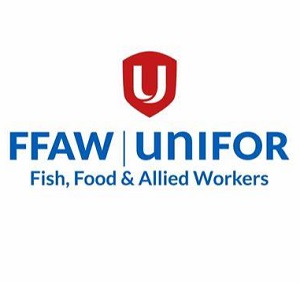 December 6, 2023 – FFAW-Unifor is dismayed at today’s news from the provincial and federal governments announcing a Memorandum of Understanding (MOU) aimed at expediting the development of wind energy in Newfoundland and Labrador. The Union is calling for a clear commitment from the Provincial Government that priority will be given during the regulatory process to consult with affected industries, in particular the fishing industry, and asks for clarifications on other issues. “Previously, the jurisdiction of offshore and nearshore energy developments has been unclear, so today’s announcement does provide a clearer path for regulation. However, the Union is concerned that the MOU fails to clarify the government’s commitment to engage with primary ocean users and not rush through regulatory processes,” says FFAW-Unifor President Greg Pretty. more, >>click to read<< 16:30
December 6, 2023 – FFAW-Unifor is dismayed at today’s news from the provincial and federal governments announcing a Memorandum of Understanding (MOU) aimed at expediting the development of wind energy in Newfoundland and Labrador. The Union is calling for a clear commitment from the Provincial Government that priority will be given during the regulatory process to consult with affected industries, in particular the fishing industry, and asks for clarifications on other issues. “Previously, the jurisdiction of offshore and nearshore energy developments has been unclear, so today’s announcement does provide a clearer path for regulation. However, the Union is concerned that the MOU fails to clarify the government’s commitment to engage with primary ocean users and not rush through regulatory processes,” says FFAW-Unifor President Greg Pretty. more, >>click to read<< 16:30
Salmon farming companies settle class-action lawsuit alleging global price-fixing scheme
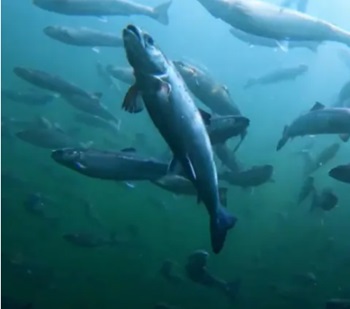 Seven companies accused of conspiring to manipulate the global price of salmon have agreed to pay a total of more than $5 million Cdn to settle a class-action lawsuit. Some of the largest players in the salmon farming industry in Newfoundland and Labrador, including Mowi and Grieg, were among the companies involved. The lawsuit claimed Cermaq Canada, Grieg Seafood, Lerøy Seafood AS, Marine Harvest Atlantic Canada, Mowi ASA, Nova Sea AS and Sjór AS conspired to manipulate the Norwegian spot market for salmon prices and in doing so influence global salmon prices. more, >>click to read<< 08:33
Seven companies accused of conspiring to manipulate the global price of salmon have agreed to pay a total of more than $5 million Cdn to settle a class-action lawsuit. Some of the largest players in the salmon farming industry in Newfoundland and Labrador, including Mowi and Grieg, were among the companies involved. The lawsuit claimed Cermaq Canada, Grieg Seafood, Lerøy Seafood AS, Marine Harvest Atlantic Canada, Mowi ASA, Nova Sea AS and Sjór AS conspired to manipulate the Norwegian spot market for salmon prices and in doing so influence global salmon prices. more, >>click to read<< 08:33
Seal hunt advocate takes issue with EU president’s claim that Indigenous exemptions are working
 The European Union’s ban on seal products did not feature heavily — if at all — during discussions between Canadian and European leaders on Friday in St. John’s, but one comment made during a news conference has drawn the ire of a group that advocates for seal harvesters. European Commission President Ursula von der Leyen told reporters she believes the exemption for Indigenous sealers is going well. Doug Chiasson, executive director of the Fur Institute of Canada, was taken aback by her comments. The biggest issue, according to Chiasson, is that the 2009 ban destroyed the existing market for seal products in Europe. When the Indigenous exemption was introduced in 2015, he said, there was no longer a market for the products. >>click to read<< 13:52
The European Union’s ban on seal products did not feature heavily — if at all — during discussions between Canadian and European leaders on Friday in St. John’s, but one comment made during a news conference has drawn the ire of a group that advocates for seal harvesters. European Commission President Ursula von der Leyen told reporters she believes the exemption for Indigenous sealers is going well. Doug Chiasson, executive director of the Fur Institute of Canada, was taken aback by her comments. The biggest issue, according to Chiasson, is that the 2009 ban destroyed the existing market for seal products in Europe. When the Indigenous exemption was introduced in 2015, he said, there was no longer a market for the products. >>click to read<< 13:52
Seafood-pricing system is flawed and a new one needs to be in place by end of January, says report
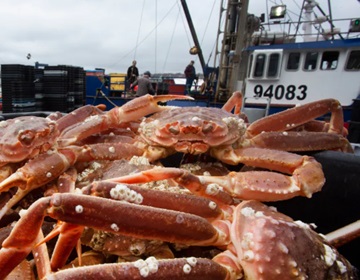 A new report from the Newfoundland and Labrador government says the current seafood price-setting process is flawed, and it outlines the need for a formula-based system that would improve the industry for harvesters and plant owners. The report was sparked by a tie-up in the spring that delayed the start of the snow crab fishery. Prices were set at just $2.20 per pound at the start of the season, and the Fish, Food & Allied Workers union and Association of Seafood Producers failed to produce an agreeable pricing formula. It says the current process for price setting, which is done by a panel, is flawed — and that the panel has an “impossible task” when faced with a fluctuating market. >>click to read<< 17:56
A new report from the Newfoundland and Labrador government says the current seafood price-setting process is flawed, and it outlines the need for a formula-based system that would improve the industry for harvesters and plant owners. The report was sparked by a tie-up in the spring that delayed the start of the snow crab fishery. Prices were set at just $2.20 per pound at the start of the season, and the Fish, Food & Allied Workers union and Association of Seafood Producers failed to produce an agreeable pricing formula. It says the current process for price setting, which is done by a panel, is flawed — and that the panel has an “impossible task” when faced with a fluctuating market. >>click to read<< 17:56
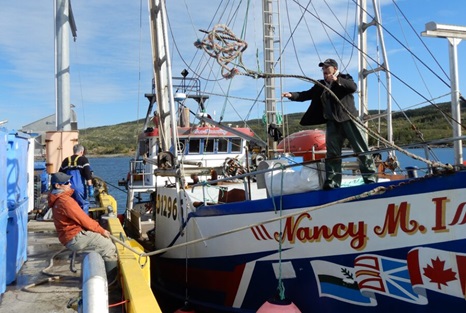
Northern cod numbers may have moved out of critical zone, says federal scientist
Captain Alex Saunders has more experience fishing northern cod than most fishermen. At 81 years old, the fishing captain has fished for cod off the Labrador coast for six decades. This year, he says, was a banner year for that fishery. “There were no codfish in northern Labrador for about 60 years, but this summer the cod were all along the Labrador coast from Blanc Sablan in the south to north of Nain,” Mr. Saunders says. A good catch rate this season meant Mr. Saunders’s crew hauled in 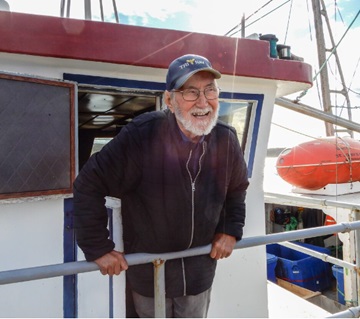 gillnets every day for weeks, returning to communities such as Pinsent’s Arm, a fishing town of about 50 people along the Labrador coast, to land cod at the wharf. But the season’s quick success also meant its early closing. “On a Friday afternoon they said, ‘Get your gear out of the water Sunday by six o’clock,’” Mr. Saunders says of the Department of Fisheries and Oceans’ (DFO) decision to shut down the fall northern cod stewardship fishery weeks earlier than planned – a measure to ensure fishing did not exceed season limits. Photos, >>click to read<< 08:33
gillnets every day for weeks, returning to communities such as Pinsent’s Arm, a fishing town of about 50 people along the Labrador coast, to land cod at the wharf. But the season’s quick success also meant its early closing. “On a Friday afternoon they said, ‘Get your gear out of the water Sunday by six o’clock,’” Mr. Saunders says of the Department of Fisheries and Oceans’ (DFO) decision to shut down the fall northern cod stewardship fishery weeks earlier than planned – a measure to ensure fishing did not exceed season limits. Photos, >>click to read<< 08:33
Harbour Grace shipyard owners try to assure creditors, customers as workers brace for the worst
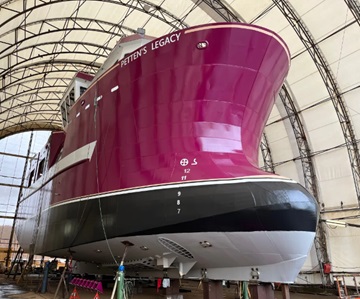 The owners of a busy shipyard in Harbour Grace are trying to assure creditors as they scramble to save a big employer in Conception Bay North. Meanwhile, dozens of workers are bracing as their jobs hang in the balance. “I got a mortgage. I got vehicle payments. I got two small children at home. A wife. There’s a lot at stake,” electrician’s helper Jake St. George said this week during his lunch break at Harbour Grace Ocean Enterprises. The shipyard has fallen on hard financial times, and a list of creditors owed nearly $16 million have been demanding their money. So in a bid to salvage the business and restructure the operation in order to avoid bankruptcy, the company was granted temporary protection from its creditors last week by the Supreme Court of Newfoundland and Labrador. >>click to read<< 16:42
The owners of a busy shipyard in Harbour Grace are trying to assure creditors as they scramble to save a big employer in Conception Bay North. Meanwhile, dozens of workers are bracing as their jobs hang in the balance. “I got a mortgage. I got vehicle payments. I got two small children at home. A wife. There’s a lot at stake,” electrician’s helper Jake St. George said this week during his lunch break at Harbour Grace Ocean Enterprises. The shipyard has fallen on hard financial times, and a list of creditors owed nearly $16 million have been demanding their money. So in a bid to salvage the business and restructure the operation in order to avoid bankruptcy, the company was granted temporary protection from its creditors last week by the Supreme Court of Newfoundland and Labrador. >>click to read<< 16:42
Harbour Grace shipyard enters creditor protection as owners face financial headwinds
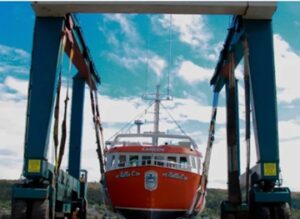 One of Newfoundland and Labrador’s largest shipyards, Harbour Grace Ocean Enterprises, has been granted court protection from its creditors as it struggles with a serious cash flow problem. The company is nearly $16 million in debt, and creditors have been demanding payment. Last week, the Supreme Court of Newfoundland and Labrador approved an order that temporarily protects the company from its creditors as it looks for a way forward. The court also appointed professional services firm PricewaterhouseCoopers to monitor the company. The shipyard employs 56 full-time employees and is described in court documents as “one of the largest marine vessel, repair, refit and construction businesses in Eastern Canada.” >>click to read<< 13:10
One of Newfoundland and Labrador’s largest shipyards, Harbour Grace Ocean Enterprises, has been granted court protection from its creditors as it struggles with a serious cash flow problem. The company is nearly $16 million in debt, and creditors have been demanding payment. Last week, the Supreme Court of Newfoundland and Labrador approved an order that temporarily protects the company from its creditors as it looks for a way forward. The court also appointed professional services firm PricewaterhouseCoopers to monitor the company. The shipyard employs 56 full-time employees and is described in court documents as “one of the largest marine vessel, repair, refit and construction businesses in Eastern Canada.” >>click to read<< 13:10
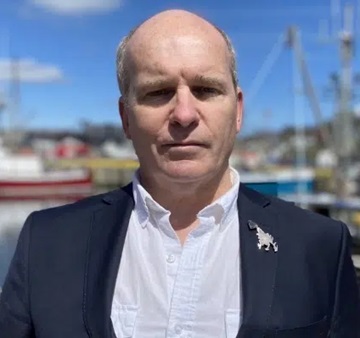
SEA-NL to Become For-Profit Fishery Co-operative
The Seaward Enterprises Association of Newfoundland and Labrador is looking to change the structure of the organization. SEA-NL has voted in favour of turning the organization into a for-profit fishery co-operative. It had previously been operating as a non-profit professional association. Executive Director Ryan Cleary says while Labrador’s industry is thriving under the co-op structure, Newfoundland’s is struggling under its current structure, so they are launching a steering committee to see what a co-op should look like on the island. >>click to read<< 11:46 >>click to read<< 11:55
Canada’s largest fishing vessel will be ready for 2024, says Baffin Fisheries CEO
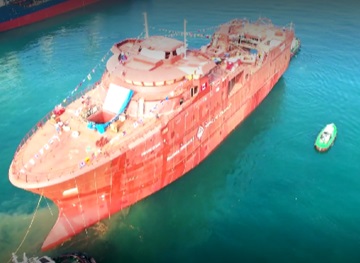 A ship being described as Canada’s largest fishing vessel — one that will soon make regular ports of call in Newfoundland harbours like St. Anthony, Harbour Grace and Bay Roberts was launched this week from a yard in Turkey, and the Nunavut-based owners say it’s on track to be harvesting turbot and shrimp from Arctic waters by next year. The vessel will also bear a name that’s quite familiar to ship-spotters in Newfoundland and Labrador: Inuksuk II. Baffin Fisheries currently operates a fleet of three fishing vessels, including the MV Inuksuk I. The vessel is 80 metres long, 18 metres wide, and will be capable of carrying up to 1,300 tonnes of frozen-at-sea turbot or 930 tonnes of shrimp. In comparison, the Inuksuk II is six metres longer than the Calvert, the newest vessel in Ocean Choice International’s fleet. >>click to read<< 14:30
A ship being described as Canada’s largest fishing vessel — one that will soon make regular ports of call in Newfoundland harbours like St. Anthony, Harbour Grace and Bay Roberts was launched this week from a yard in Turkey, and the Nunavut-based owners say it’s on track to be harvesting turbot and shrimp from Arctic waters by next year. The vessel will also bear a name that’s quite familiar to ship-spotters in Newfoundland and Labrador: Inuksuk II. Baffin Fisheries currently operates a fleet of three fishing vessels, including the MV Inuksuk I. The vessel is 80 metres long, 18 metres wide, and will be capable of carrying up to 1,300 tonnes of frozen-at-sea turbot or 930 tonnes of shrimp. In comparison, the Inuksuk II is six metres longer than the Calvert, the newest vessel in Ocean Choice International’s fleet. >>click to read<< 14:30
Newfoundland fishermen get ‘best news’ on northern cod stocks in a generation
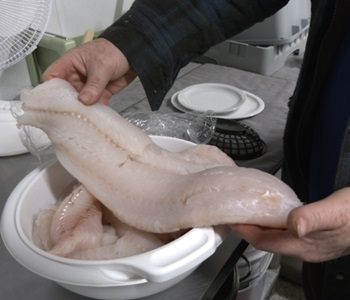 It’s a technical, scientific change: the Limit Reference Point, a key part of the assessment of a fish stock’s health, has been revised. Because of a change in their scientific method, officials at Fisheries and Oceans Canada now believe that Newfoundland’s northern cod stock has moved out of the critical zone for the first time in decades. When then-fisheries minister John Crosbie shut down most of the fishery in 1992, about 30,000 fish harvesters instantly lost their jobs. It was the biggest layoff in Canadian history. Fish harvesters were given $225 a week for 10 weeks to get by. The moratorium was only expected to last two years, but in the decades since, the northern cod stock never left the critical zone — until now. photos, >>click to read<< 07:44
It’s a technical, scientific change: the Limit Reference Point, a key part of the assessment of a fish stock’s health, has been revised. Because of a change in their scientific method, officials at Fisheries and Oceans Canada now believe that Newfoundland’s northern cod stock has moved out of the critical zone for the first time in decades. When then-fisheries minister John Crosbie shut down most of the fishery in 1992, about 30,000 fish harvesters instantly lost their jobs. It was the biggest layoff in Canadian history. Fish harvesters were given $225 a week for 10 weeks to get by. The moratorium was only expected to last two years, but in the decades since, the northern cod stock never left the critical zone — until now. photos, >>click to read<< 07:44
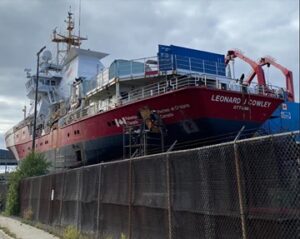
Canadian Coast Guard ‘rolling the dice’ with offshore search and rescue coverage: SEA-NL
Seaward Enterprises Association of Newfoundland and Labrador (SEA-NL) says the Canadian Coast Guard is rolling the dice with maritime safety with only a single primary offshore search and rescue (SAR) vessel dedicated to covering the province’s entire offshore area. “In a maritime environment where every minute could be the difference between life and death in SAR incidents, there is no room for any compromise in response capabilities,” says Merv Wiseman, a member of SEA-NL’s executive, and outspoken advocate for stronger SAR services and fishing-vessel safety. “My question is not just why SAR standards have been lowered, but for how long and whether this is the new normal? >>click to read<< 15:56
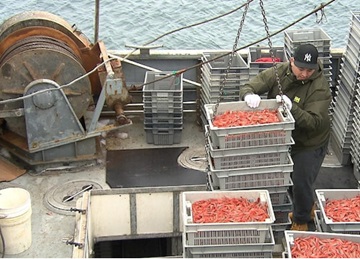
Northern Shrimp fishing: DFO proposals do not pass muster in the industry
Northern shrimp fishermen from Quebec and the Atlantic wholeheartedly reject the new precautionary approach presented by Fisheries and Oceans Canada (DFO) scientists to protect stocks. The fishing associations of Quebec, New Brunswick and Newfoundland and Labrador, industrialists and DFO scientists were gathered during two days for the advisory committee which ended Wednesday in Quebec. Northern shrimp stocks in the Estuary and Gulf of St. Lawrence are not likely to improve, according to Fisheries and Oceans Canada. >>click to read<< 11:47
‘It lives’: The story of Gaultois, a rural Newfoundland community in limbo
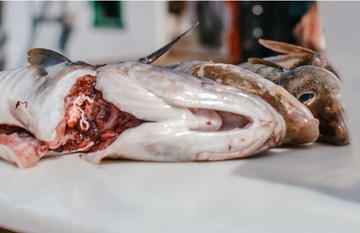 When Atlantic Canada’s cod fishery collapsed, it took a number of small towns with it. Gaultois, an isolated community on Newfoundland’s rugged south coast, hung on for decades after the fish vanished and the town’s fish plant closed in 1990. But with fish no longer to be had, the town’s population plummeted from 600 in the late 1980s to fewer than 100. With numbers that low, residents were faced with the question of whether the town was still viable and in July 2022, opted to hold a resettlement vote. Resettlement votes happen often in Newfoundland and Labrador. Small outport communities vote on whether to stay in their rural homes or if they should move to bigger towns with financial assistance from the provincial government. >>click to read<< 10:35
When Atlantic Canada’s cod fishery collapsed, it took a number of small towns with it. Gaultois, an isolated community on Newfoundland’s rugged south coast, hung on for decades after the fish vanished and the town’s fish plant closed in 1990. But with fish no longer to be had, the town’s population plummeted from 600 in the late 1980s to fewer than 100. With numbers that low, residents were faced with the question of whether the town was still viable and in July 2022, opted to hold a resettlement vote. Resettlement votes happen often in Newfoundland and Labrador. Small outport communities vote on whether to stay in their rural homes or if they should move to bigger towns with financial assistance from the provincial government. >>click to read<< 10:35
Fishers suffering from seal boom, Senate committee hears in Newfoundland and Labrador
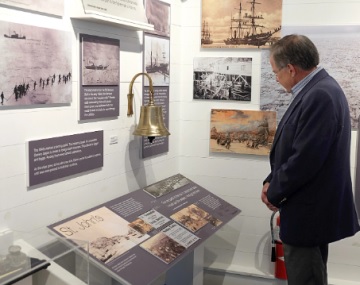 The Canadian sealing and fishing industries have been left to sink or swim while booming seal populations on the Atlantic Canada coast deplete fish stocks and disrupt marine ecosystems, the Senate Committee on Fisheries and Oceans heard on a recent fact-finding mission. The committee took its in-depth study on the effects of Canada’s seal populations to Newfoundland and Labrador from September 11 to 13, 2023. Fact-finding activities in Elliston, South Dildo, Port de Grave and St. John’s, capped off by day-long public hearings in the provincial capital, provided senators with a detailed picture of the province’s rich history with the seal fishery and the serious challenges domestic sealers and fishers are facing today. >>>click to read<< 11:46
The Canadian sealing and fishing industries have been left to sink or swim while booming seal populations on the Atlantic Canada coast deplete fish stocks and disrupt marine ecosystems, the Senate Committee on Fisheries and Oceans heard on a recent fact-finding mission. The committee took its in-depth study on the effects of Canada’s seal populations to Newfoundland and Labrador from September 11 to 13, 2023. Fact-finding activities in Elliston, South Dildo, Port de Grave and St. John’s, capped off by day-long public hearings in the provincial capital, provided senators with a detailed picture of the province’s rich history with the seal fishery and the serious challenges domestic sealers and fishers are facing today. >>>click to read<< 11:46
N.L. processors dumped 5 times as much crab in 2023 as they did last year
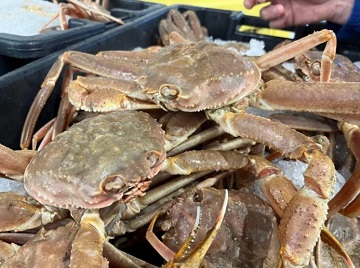 Newfoundland and Labrador fish processors dumped more than 300,000 pounds of snow crab during the past season — more than five times the amount dumped last year — according to data from the provincial Department of Fisheries, Forestry and Agriculture. In 2023, processors dumped 303,202 pounds of crab, compared with 59,239 in 2022 — a 411 per cent increase. Officials have not confirmed the reasons for the increased dumping, but harvesters blame a compressed season and unusually warmer waters. The 2023 snow crab season was marred with conflict from the outset: a six-week standoff over the $2.20-per-pound price that pushed the start of the season well into May, sending harvesters scrambling to catch what they could before cut-off and creating a bottleneck of boats on the water and product at plants. Photos, >>click to read<< 09:46
Newfoundland and Labrador fish processors dumped more than 300,000 pounds of snow crab during the past season — more than five times the amount dumped last year — according to data from the provincial Department of Fisheries, Forestry and Agriculture. In 2023, processors dumped 303,202 pounds of crab, compared with 59,239 in 2022 — a 411 per cent increase. Officials have not confirmed the reasons for the increased dumping, but harvesters blame a compressed season and unusually warmer waters. The 2023 snow crab season was marred with conflict from the outset: a six-week standoff over the $2.20-per-pound price that pushed the start of the season well into May, sending harvesters scrambling to catch what they could before cut-off and creating a bottleneck of boats on the water and product at plants. Photos, >>click to read<< 09:46
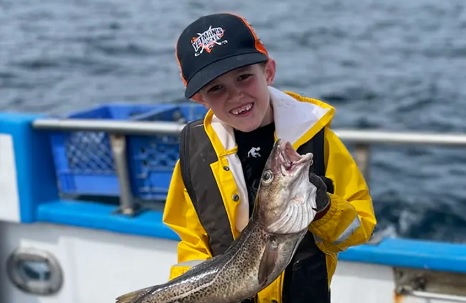
‘I can’t imagine being anywhere else’: The call of the ocean came naturally for six-year-old Petty Harbour fisherman
In the heart of the vast ocean, just off the shores of Petty Harbour, where the sun danced on the water’s surface, and the salty breeze kissed the cheeks of those who dared to venture, there came a moment that would forever be etched in the memory of six-year-old fisherman Austen Chafe. As the boat gently glided on the waves, an unexpected visitor emerged from the depths — a majestic tuna, gleaming with power and grace. In a split second, the world changed, as the tuna leaped and bestowed upon Austen a gift of seawater, laughter and an enduring love for the sea. “When that tuna splashed on me,” Austen said, his eyes sparkling with the memory, “I felt like the luckiest kid in the world. It’s moments like these that make me love the ocean even more. There’s something magical about being out here, and I can’t imagine being anywhere else.” Born into a family of fishermen, the call of the ocean was as natural as the rhythm of the tides for young Austen. Photos, >>click to read<< 09:34
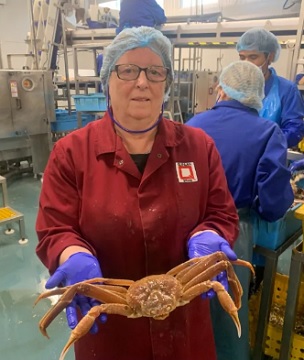
Crab plant workers have punched their time in spades this season, and are being called heroes
Workers at seafood processing plants in Newfoundland have been working all summer long in an effort to make sure snow crab quotas for the shortened 2023 season are met, and they say they’re ready for a break. “This season has been one of the hardest seasons that we have worked here, because we had to do a lot of crab in a short period of time,” Louise Power, a floor supervisor at the Quinlan Brothers Ltd. plant in Bay de Verde, told CBC News Tuesday. She worked at the plant for 46 years, and has had four days off since May. “We all got through it, and made the season work,” she said. “Right now, [I’m] happy as a lark.” >>click to read<< 11:50

DFO investigates fishing licences for outside control
Seaward Enterprises Association of Newfoundland and Labrador (SEA-NL) encourages inshore owner-operators who have lost control of their commercial licences or fishing enterprise to contact Fisheries and Oceans, which is actively investigating several cases. “If you are not in control of your boat or licences then contact DFO and have it looked into and made right,” says Ryan Cleary, SEA-NL’s Executive Director. “By law, licensed inshore harvesters must be independent — solely in control of their enterprises, licences, and catches — and if you are not then SEA-NL encourages you to take control.” >>click to read<< 08:45
The Ties that Bind
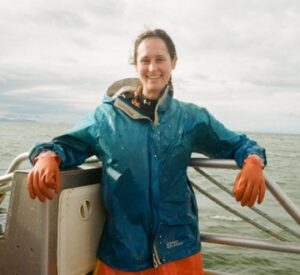 Nancy Bowers’ mother fished in the 1980s when it was uncommon for women to be out in boat. Since then, Bowers says, the fishing industry has come a long way. “[If] my mom was alive today and saw all these women that’s actually fishing, she would be mind boggled.” Bowers herself is one of these women. Fisherwomen might be few in number, but they have a strong community. Bowers says what started as a couple of women wanting to stay connected became a group of over 100 fishers. They meet virtually once a month and once in person after the fishing season. Lillian Saul fished in Alaska before moving to Newfoundland. She says she was surprised by how few women fish in the province. “In Alaska there’s tons of women, not only just on boats but also running boats and a lot of different types of fisheries.” Photos, >click to read< 10:40
Nancy Bowers’ mother fished in the 1980s when it was uncommon for women to be out in boat. Since then, Bowers says, the fishing industry has come a long way. “[If] my mom was alive today and saw all these women that’s actually fishing, she would be mind boggled.” Bowers herself is one of these women. Fisherwomen might be few in number, but they have a strong community. Bowers says what started as a couple of women wanting to stay connected became a group of over 100 fishers. They meet virtually once a month and once in person after the fishing season. Lillian Saul fished in Alaska before moving to Newfoundland. She says she was surprised by how few women fish in the province. “In Alaska there’s tons of women, not only just on boats but also running boats and a lot of different types of fisheries.” Photos, >click to read< 10:40
Shortage of workers and housing causing perfect storm of problems at Makkovik fish plant
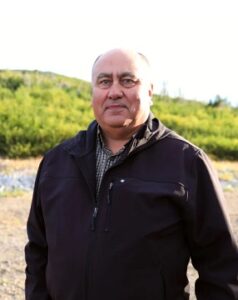 The operator of Makkovik’s fish plant says a shortage of workers, and a shortage of places for workers to live, has left the plant unable process crab as normal this season. Keith Watts, general manager of the Torngat Fish Producers Co-op, which operates plants in Makkovik and Nain, says operations in Nain went smoothly this season but work in Makkovik has been limited due to a lack of workers. Watts said the community has an aging workforce and the plant’s remote northern location limits the number of workers it’s able to attract. He’d like to be able to attract temporary foreign workers to work at the plant, he said, but he knows there would be nowhere for them to live. Barry Andersen, Makkovik’s AngajukKak, or mayor, said he knows housing is a real concern in the region, especially when it comes to rentals and other spaces available for booking, like hotels. >click to read< 09:55
The operator of Makkovik’s fish plant says a shortage of workers, and a shortage of places for workers to live, has left the plant unable process crab as normal this season. Keith Watts, general manager of the Torngat Fish Producers Co-op, which operates plants in Makkovik and Nain, says operations in Nain went smoothly this season but work in Makkovik has been limited due to a lack of workers. Watts said the community has an aging workforce and the plant’s remote northern location limits the number of workers it’s able to attract. He’d like to be able to attract temporary foreign workers to work at the plant, he said, but he knows there would be nowhere for them to live. Barry Andersen, Makkovik’s AngajukKak, or mayor, said he knows housing is a real concern in the region, especially when it comes to rentals and other spaces available for booking, like hotels. >click to read< 09:55
FISH HARVESTERS UNION CLAIMS HEALTHY COD POPULATIONS
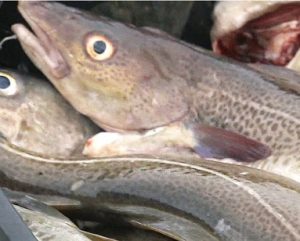 The Fish, Food and Allied Workers Union (FFAW) has received reports confirming the presence of healthy cod populations near our shores. The union has been advocating for an increase in the total allowable catch for several years, but their efforts have been largely unsuccessful. The Department of Fisheries and Oceans (DFO) takes a cautious approach when determining quotas, despite the fact that the pressure on the cod stock from harvesting activities is minimal. FFAW Secretary Treasurer, Jason Spingle, is urging the Canadian government to conduct a thorough stock survey to obtain more comprehensive scientific data. >click to read< 10:22
The Fish, Food and Allied Workers Union (FFAW) has received reports confirming the presence of healthy cod populations near our shores. The union has been advocating for an increase in the total allowable catch for several years, but their efforts have been largely unsuccessful. The Department of Fisheries and Oceans (DFO) takes a cautious approach when determining quotas, despite the fact that the pressure on the cod stock from harvesting activities is minimal. FFAW Secretary Treasurer, Jason Spingle, is urging the Canadian government to conduct a thorough stock survey to obtain more comprehensive scientific data. >click to read< 10:22
Fish plants are busy with crab, so here’s how harvesters are selling their catch of cod and are getting creative to sell it
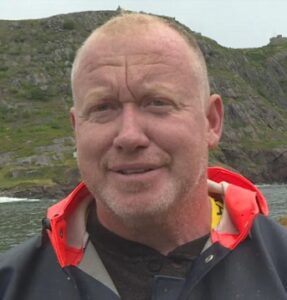 “We’re down here today filleting our fish because we have nowhere to sell our fish,” said fisherman Wade King. “None of the fish plants were buying, so we got a restaurant in Mount Pearl [buying], King Cod.” Snow crab harvesters kept their boats tied up at the beginning of the fishing season in April to protest the price set for their catch. After a six-week delay, the fishery began at the same price that had been set to start the season. But the delay means plants are still busy processing crab when they’d normally be processing cod. King said he’s still without a buyer three weeks into the cod fishery, which is something he’s never seen before. >click to read< 13:14
“We’re down here today filleting our fish because we have nowhere to sell our fish,” said fisherman Wade King. “None of the fish plants were buying, so we got a restaurant in Mount Pearl [buying], King Cod.” Snow crab harvesters kept their boats tied up at the beginning of the fishing season in April to protest the price set for their catch. After a six-week delay, the fishery began at the same price that had been set to start the season. But the delay means plants are still busy processing crab when they’d normally be processing cod. King said he’s still without a buyer three weeks into the cod fishery, which is something he’s never seen before. >click to read< 13:14
Too Many Seals – Canada’s Pinniped Population Problem
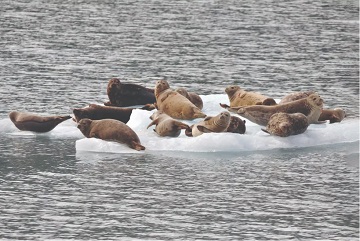 Seals in Atlantic Canada eat a lot of fish every day and there is a great deal of them, coming in at nearly 12 million animals. Their voracious appetite, according to experts, is damaging both the commercial fishery and fish stocks. Bob Hardy has spent a good portion of his life dealing with seals in one way or another. Growing up in Battle Harbour, Labrador, Hardy spent some time taking part in the inshore cod and salmon fisheries. After graduating from university, he spent nine years as a researcher before entering the seafood industry wherein he developed the first seal oil capsule that was commercially available in Newfoundland and Labrador. In 2007, he founded Hardy Fish Co., a fisheries consultancy company, where he took part in projects that researched seal oil, meat and by-product utilization. He has also spent time as a member of the Atlantic Seal Science Task Team. Hardy has since drafted a document entitled, Seals Eat Fish, highlighting the impact the large seal population has on fish stocks and the fishery itself. >click to read< 18:56
Seals in Atlantic Canada eat a lot of fish every day and there is a great deal of them, coming in at nearly 12 million animals. Their voracious appetite, according to experts, is damaging both the commercial fishery and fish stocks. Bob Hardy has spent a good portion of his life dealing with seals in one way or another. Growing up in Battle Harbour, Labrador, Hardy spent some time taking part in the inshore cod and salmon fisheries. After graduating from university, he spent nine years as a researcher before entering the seafood industry wherein he developed the first seal oil capsule that was commercially available in Newfoundland and Labrador. In 2007, he founded Hardy Fish Co., a fisheries consultancy company, where he took part in projects that researched seal oil, meat and by-product utilization. He has also spent time as a member of the Atlantic Seal Science Task Team. Hardy has since drafted a document entitled, Seals Eat Fish, highlighting the impact the large seal population has on fish stocks and the fishery itself. >click to read< 18:56
Fisheries’ union president blasts N.L.’s oil regulator over encroachment on crab harvesters’ turf
 At this moment, ExxonMobil’s Hercules rig is drilling about 350 kilometres east of St. John’s, in the Jeanne D’Arc Basin, as part of its oil exploration program but it has pushed crab harvesters out of an area where their catch is abundant, and the union is calling foul. It could be a sign of future friction, warns Fish, Food & Allied Workers-Unifor president Greg Pretty, who is blasting the Canada-Newfoundland and Labrador Offshore Petroleum Board over what he calls a lack of communication and a disregard for the fishing industry. “We were actually shocked to find out that that rig, the Hercules — the drill rig — was actually on one of the most productive crab grounds in that area,” Pretty said Thursday. >click to read< 15:56
At this moment, ExxonMobil’s Hercules rig is drilling about 350 kilometres east of St. John’s, in the Jeanne D’Arc Basin, as part of its oil exploration program but it has pushed crab harvesters out of an area where their catch is abundant, and the union is calling foul. It could be a sign of future friction, warns Fish, Food & Allied Workers-Unifor president Greg Pretty, who is blasting the Canada-Newfoundland and Labrador Offshore Petroleum Board over what he calls a lack of communication and a disregard for the fishing industry. “We were actually shocked to find out that that rig, the Hercules — the drill rig — was actually on one of the most productive crab grounds in that area,” Pretty said Thursday. >click to read< 15:56






